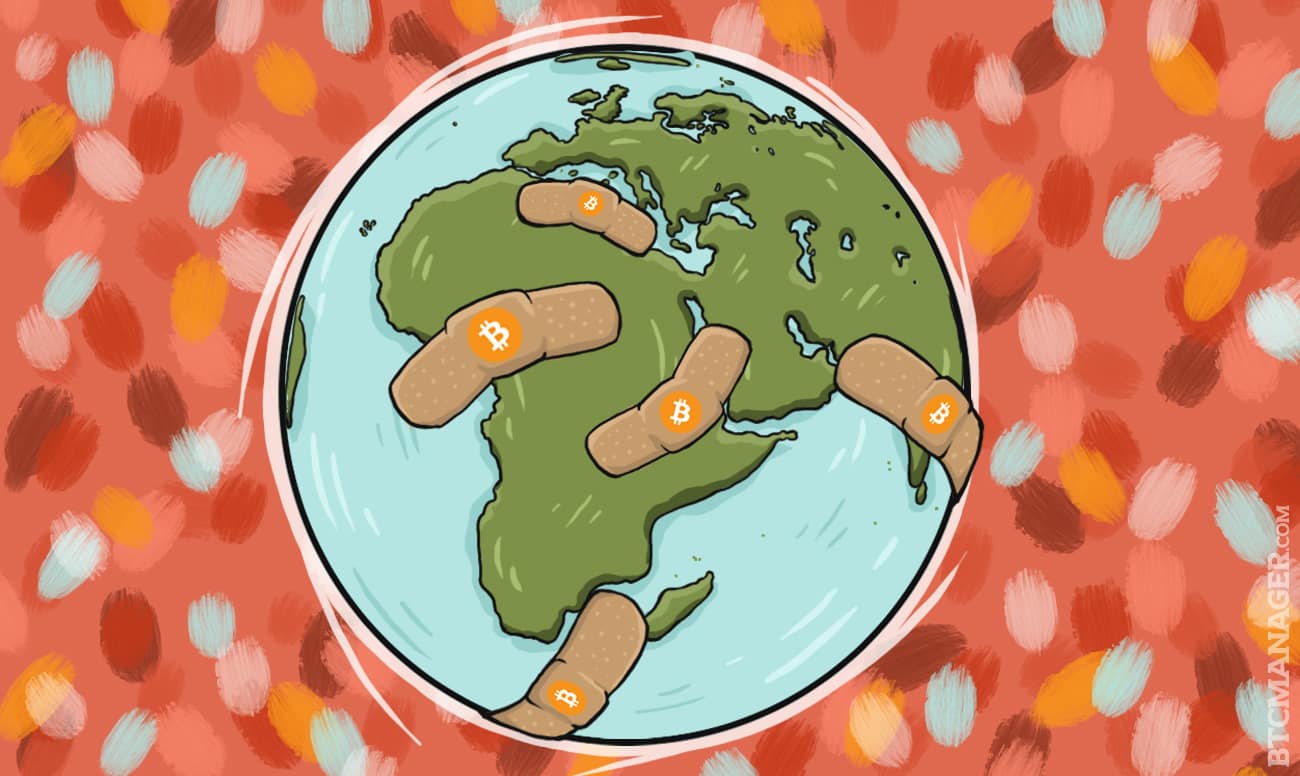How Societies Default to Decentralized Currency During Crises

One of the primary problems with the use of a fiat currency issued by a central bank is that it leaves the common users, residents of the issuing country, vulnerable to the decisions made by the policy-makers. In the case of many developing countries, this leaves citizens economically helpless when the national bank chooses to devalues the monetary system.
Traditionally, developing countries which have undergone hyperinflation, such as Zimbabwe or Liberia, have instituted a stronger foreign currency such as the American dollar or the pound sterling as a substitute. However, foreign currency is often made illegal during the inflation itself in order to attempt to compell residents to use their home currencies. People are then forced to search for alternatives to their currency, such as barter or other forms of money.
For example, the Ugandan shilling has been historically unstable and subject to fluctuating value outside the common citizen’s control for many years. While it works on a day-to-day basis, it can be dangerous and inconvenient for citizens to save and transact with. Often American dollars, the “reserve” currency, are rare and unaffordable for the average resident of the developing world. In a brilliant necessity-being-the-mother-of-invention move, Ugandans and many other Africans have begun to trade cell phone minutes as a form of barter currency.
Some services are even popping up making it easier than ever to trade in mobile minutes, such as Kenya’s M-Pesa, a service developed by Vodafone. However, even outside the development of large corporations, the manual exchange of mobile minutes for cash is becoming the norm in Ghana, Uganda, Egypt, India, South Africa, and Nigeria.
Cell phone minutes are a surprising form of decentralized currency not dissimilar to cryptocurrency: they are transferable, convenient, and divisible enough that even the poorest Ugandan can afford to send & receive a few minutes in trade for food or other necessities. With the dozens of telecom providers and widespread cell service throughout sub-Saharan Africa, it is essentially a micro-currency remaining fairly unregulated by the government.
The economics writer Charles Hugh Smith writes, “Those who believe states can never lose control of their currency should consider what happens in hyper-inflation. When states debauch their currencies and push them over the cliff, people abandon the currency in favor of money that holds its value and acts as a means of exchange […] When official money loses its purchasing power, even phone-card minutes can act as money.”
There are obvious limitations to using cell phone minutes as money, but it’s interesting to see it born out of necessity. Fiat currency doesn’t solve the problems that developing countries face, and better alternatives inevitably step in to fill the gap. Cryptocurrency serves as a massive potential for the developing world, and with the consistent advance of affordable mobile devices available to the masses, it will only grow in usage. The natural adoption as cell phone minutes as a micro-currency is reflective of an innate default to decentralization, a hedge against the corruption and impotence of central planning powers. While this is most commonly seen in developing countries, it’s inevitable that we will see the common practice of decentralization spread to first-world nations as well.
Bitcoin, as the most widely adopted form of cryptocurrency, stands to serve as an ideal alternative for emerging and developed markets alike to use as a hedge against inflation, over-regulation, and limitations inherent in a fiat economy. It will only be a matter of time before bitcoin is integrated into technologies aimed for these economies. Once companies begin figure out the best way to tap into the potential of these markets, we’ll begin to see the true value of bitcoin as it improves the economic prospects of people in the developing world.












